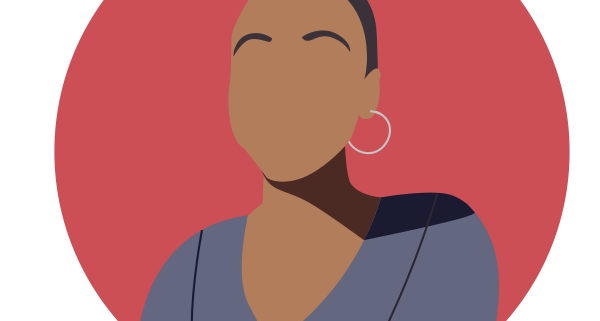Enjoying school during COVID-19 is just not realistic

The week before spring break was a tumultuous one for all of us.
As a student who receives Disability Services and Programs accommodations, I submitted a request to alter my accommodations due to the transition to remote learning. Taking classes and tests online was significantly more difficult for me than taking them in person. Not only did my professors not have a good format for testing — specifically in my organic chemistry and calculus classes, which switched from the department website to Blackboard and then to Google Forms — but the constant back and forth from my computer to paper proved challenging for me. Evidenced by the fact that I was doing well in my classes before the online transition, it wasn’t the material or class content I was struggling with but the messy online format in the stressful circumstances the outbreak had fostered.
One week later, I was informed my request was denied.
“The University recognizes [the challenging transition online] and has provided students with additional options to withdraw from classes or change grading options and make the best academic decision for you,” read the email I received in early April.
When I told my doctor in our appointment mid-March that people were arguing about universal pass/no pass, she just said, “People are dying. Why are they so pressed about a letter grade?” I couldn’t have agreed more.
As the pandemic progresses, it is clear that the University is implementing decisions in an effort to help students and staff adjust to our new world. The provost’s office is taking careful steps to ensure that this transition remains as “SCandal”-free as possible by allowing students to stay in housing, paying student workers through the end of the semester, providing some resources to those who need it through emergency assistance funds and more. Despite these measures, USC is failing in an area that continues to be its Achilles’ heel: Concern for students’ mental health. What is even worse is that the University insists it’s doing the best it can.
The current grading options, which include pass/no pass, no record and letter, are just that: options. They are options that students who are in worse circumstances due to the coronavirus may be forced to take, although many interested in further education will not be able to. While I inquired for more information from the University about how it will specifically accommodate DSP students, I just continued to receive PR speech that neither fulfilled my request nor addressed my primary concerns.
I tweeted about my frustration and accepted USC’s request to pass my tweet along to higher-ups. A week later, I received a response from the director of DSP, who directed me to the Resolving Concerns tab on DSP’s website. Not only did her email fail to provide any new information, but she didn’t address any of my concerns with the online testing format. After this response, I gave up on the bureaucratic pipeline and the hope that USC would do right by its students.
However, deep down I always knew this would happen because the provost’s office regards me as yet another Black face. Every day I am reminded that the United States was not built for Black people. This is not new information, but I am constantly reminded of this fact when I see the rising statistics about the disproportionate number of Black people dying from the coronavirus. The percentage of Black people dying outweighs their share of the population in almost every state where data is available, such as Michigan, where Black people make up 40% of the death toll but only 14% of the population.
The days that are really bad it’s as if my life is on mute: Everything is bleak. Every day, I worry about my grandmother and my little cousin who have significant risk factors that make them vulnerable to the virus. I worry about my friends when their families get sick. After weeks of staying home, I have to reconcile with the fact that there is nothing to look forward to for the next several months. And as most of us have realized, as long as people continue to act selfishly, such as by protesting safer-at-home orders, there is no hard end date in sight.
These are difficult times for everyone. As my therapist refers to it, this “fake normal” has been a hard adjustment, as we remain isolated and are stripped of any source of routine. There’s nothing that sucks the meaning out of life more than when everything in the world is dark and scary.
In the darkness however, I found a light: Netflix competition reality shows. My journey began with “Instant Hotels,” an Australian Airbnb competition, then a glassblowing competition with “Blown Away,” and finally, “Interior Design Masters.” For some reason, I just can’t use this time to watch heavy dramas. It’s a stupid thing, but I just want to be entertained with the television I watch.
After sitting with my frustration for a week, I figured out what I need to do daily to remain well in times of social distancing: Talk with a loved one on the phone, shower and do my full skin-care routine and cook a meal. It’s relatively simple, but establishing a routine has worked for me. I hope everyone has been able to find something that gives them peace at this time. Otherwise, it is too much anxiety for anyone to bear.
I miss my family. I miss hanging out with my friends. I miss walking around campus. I miss my life. But I have to believe everything will be OK.

